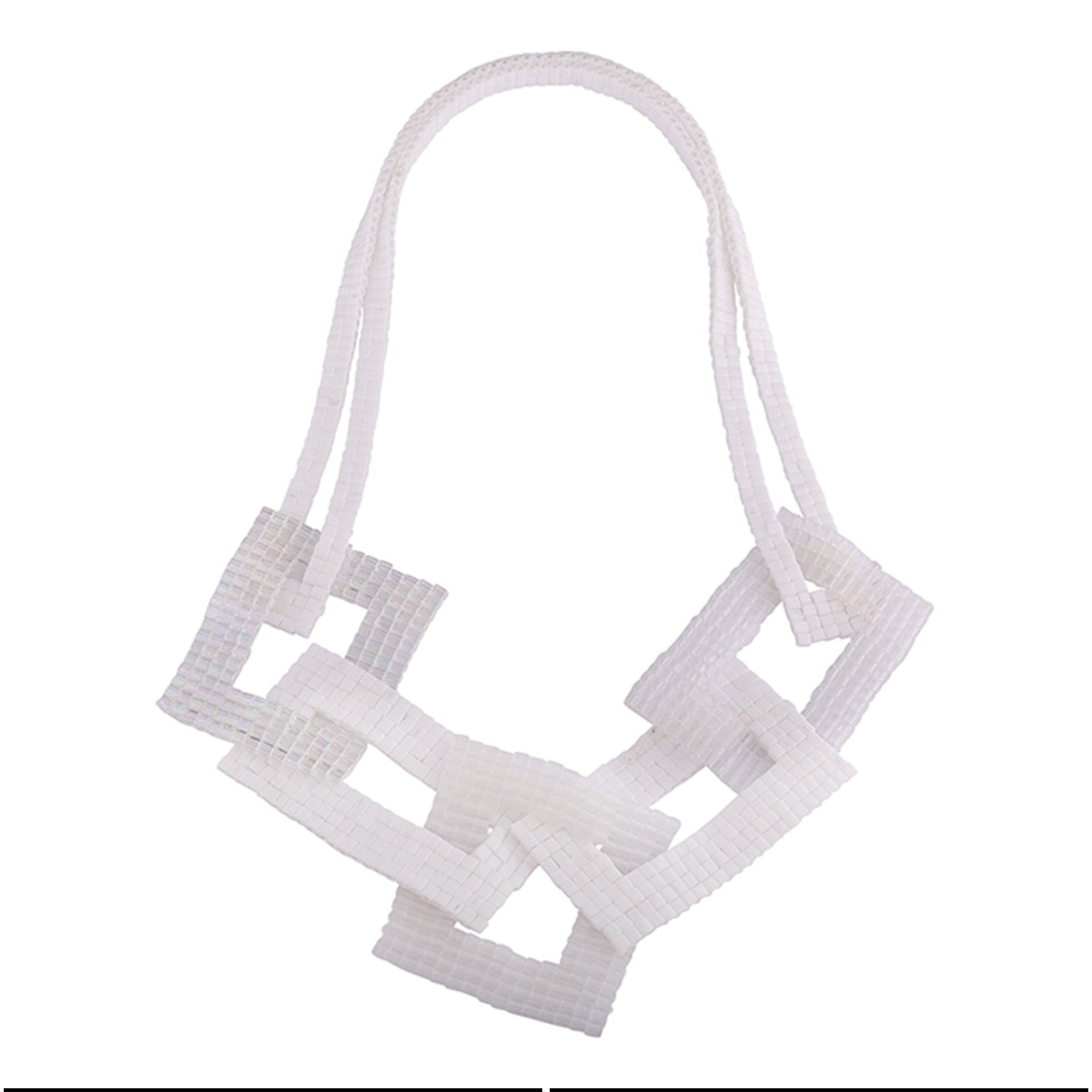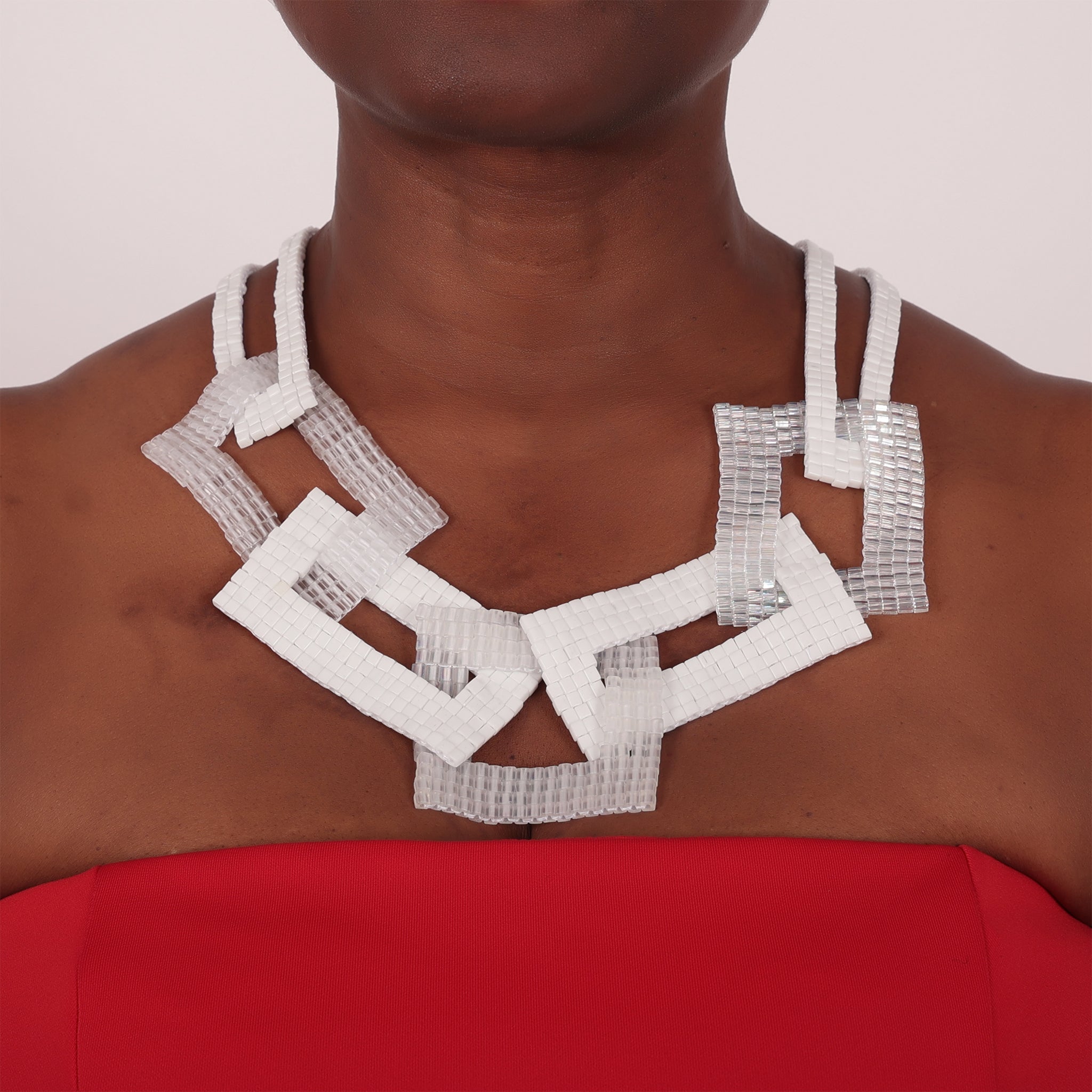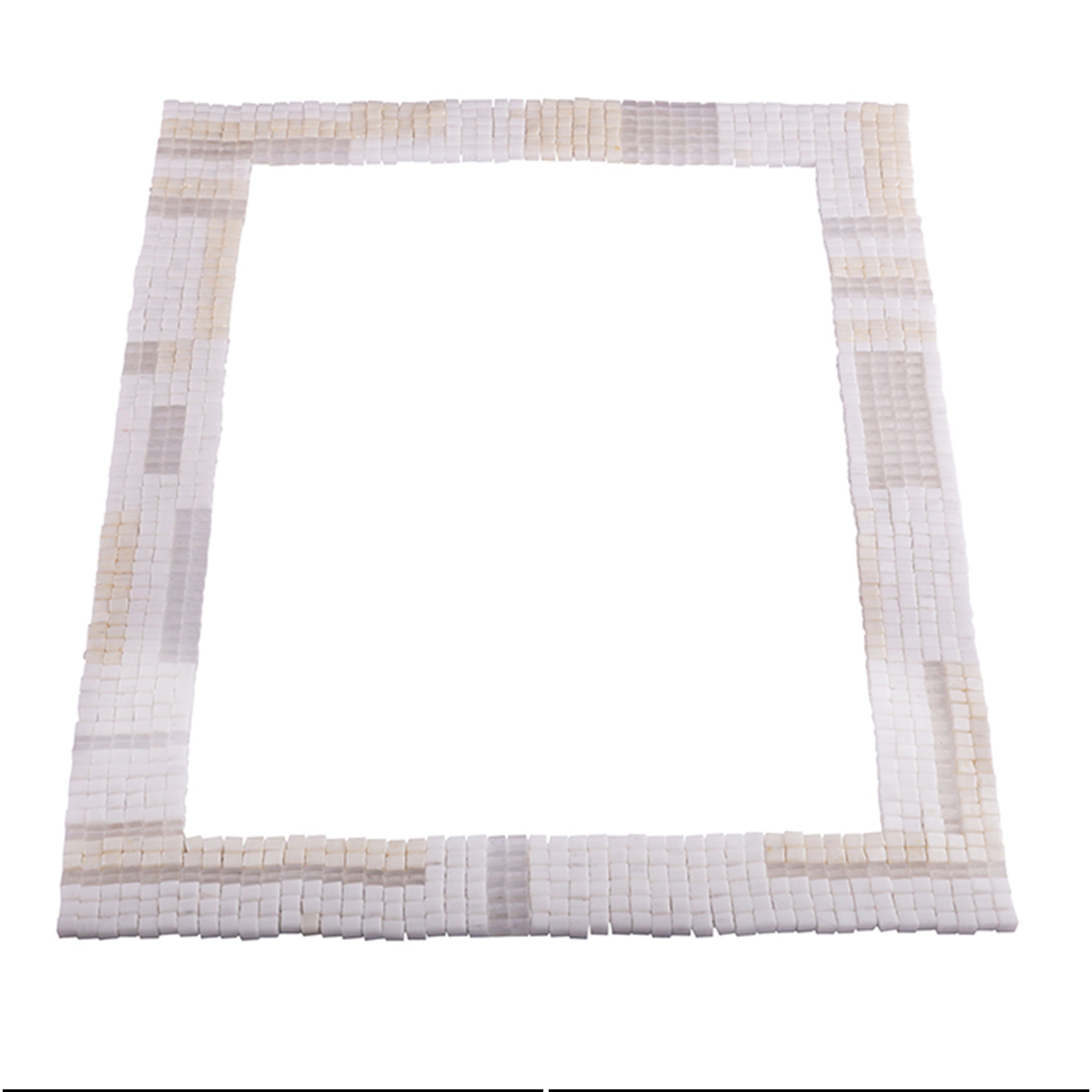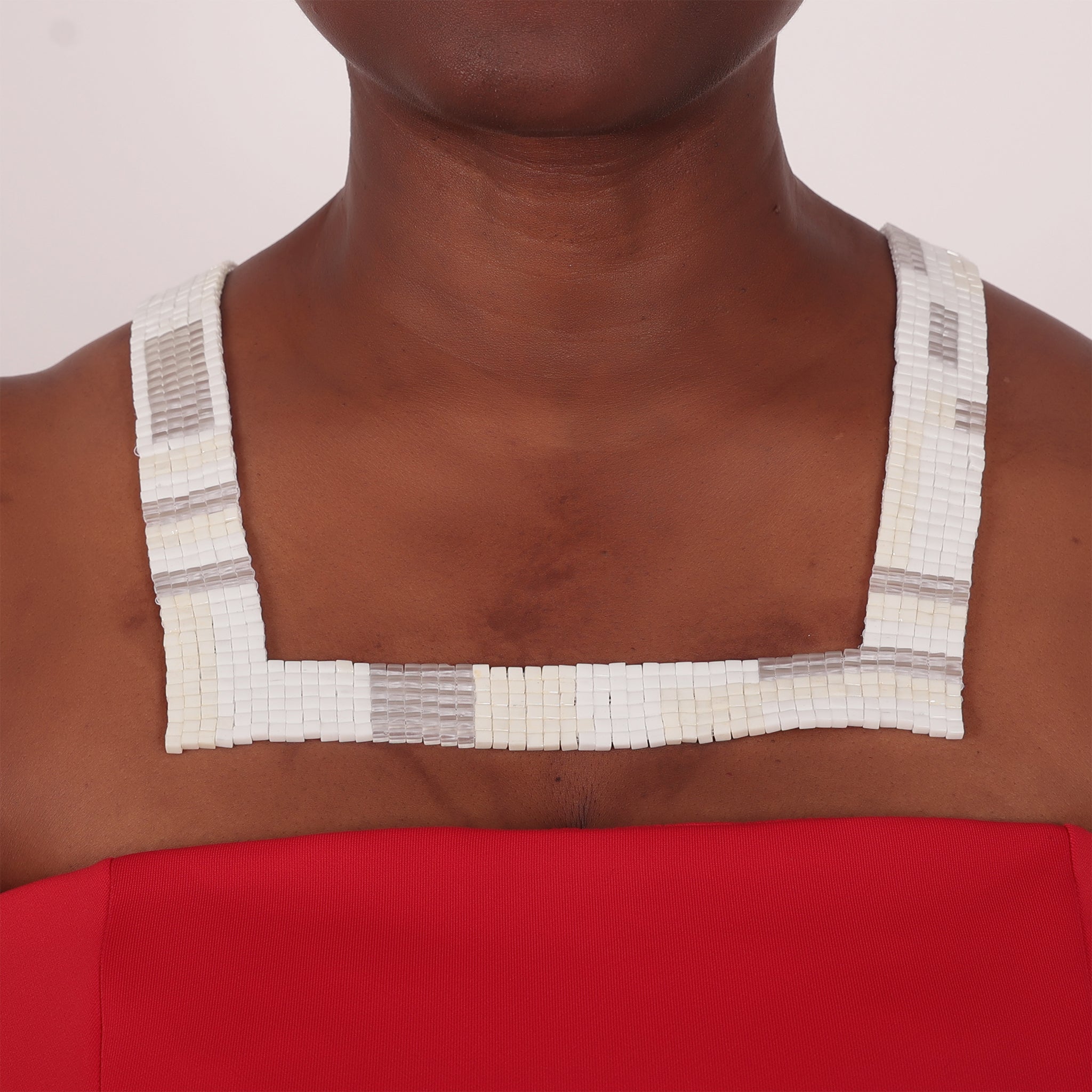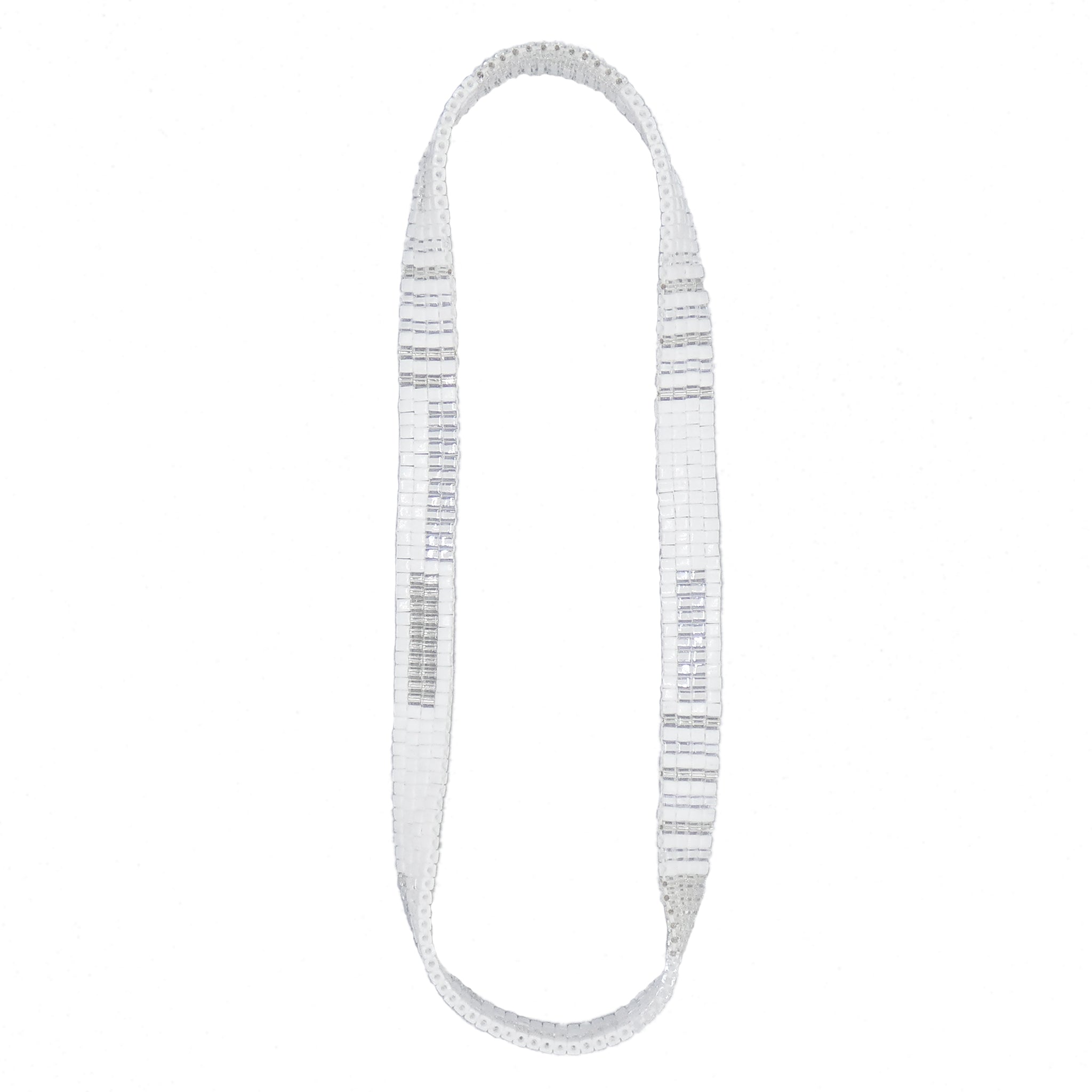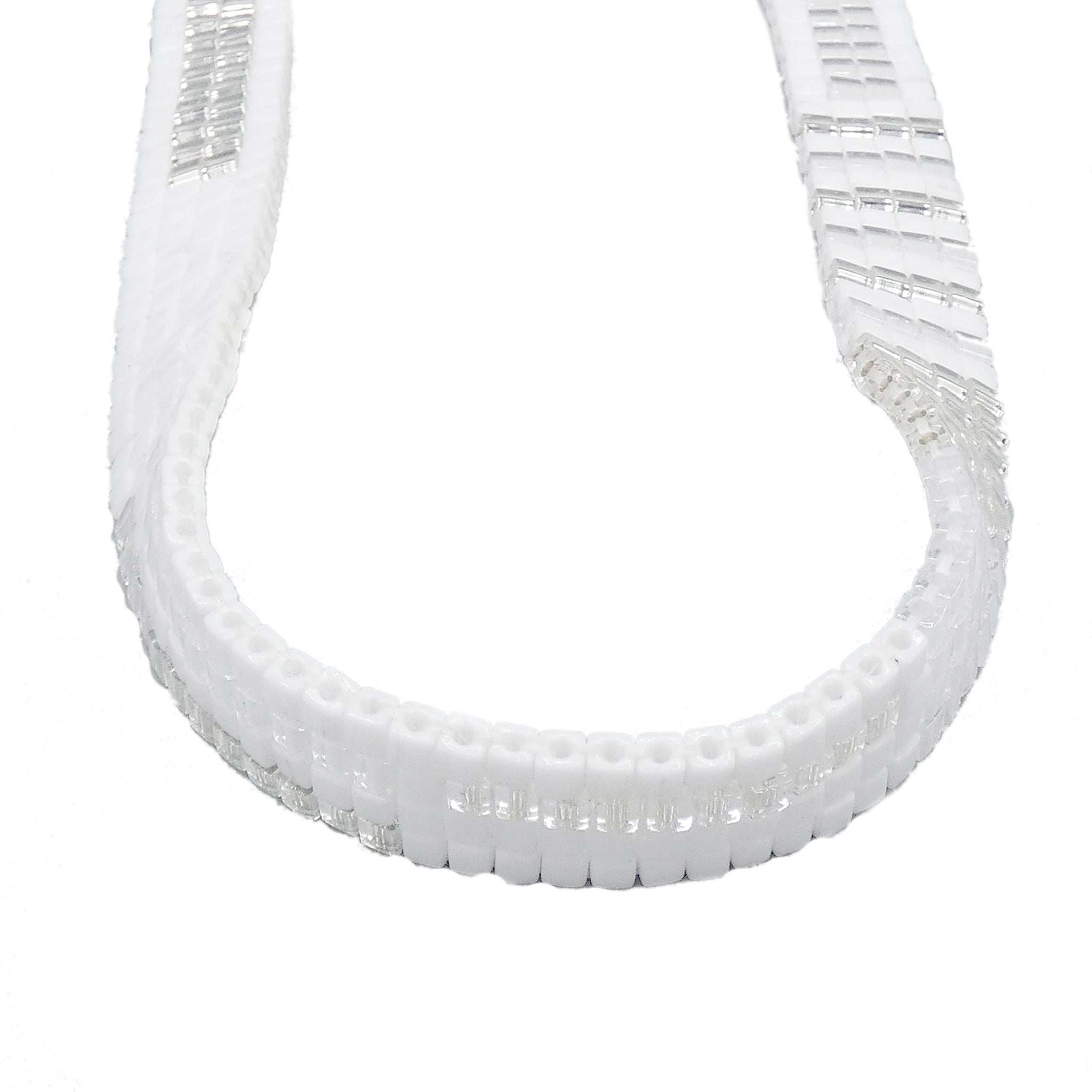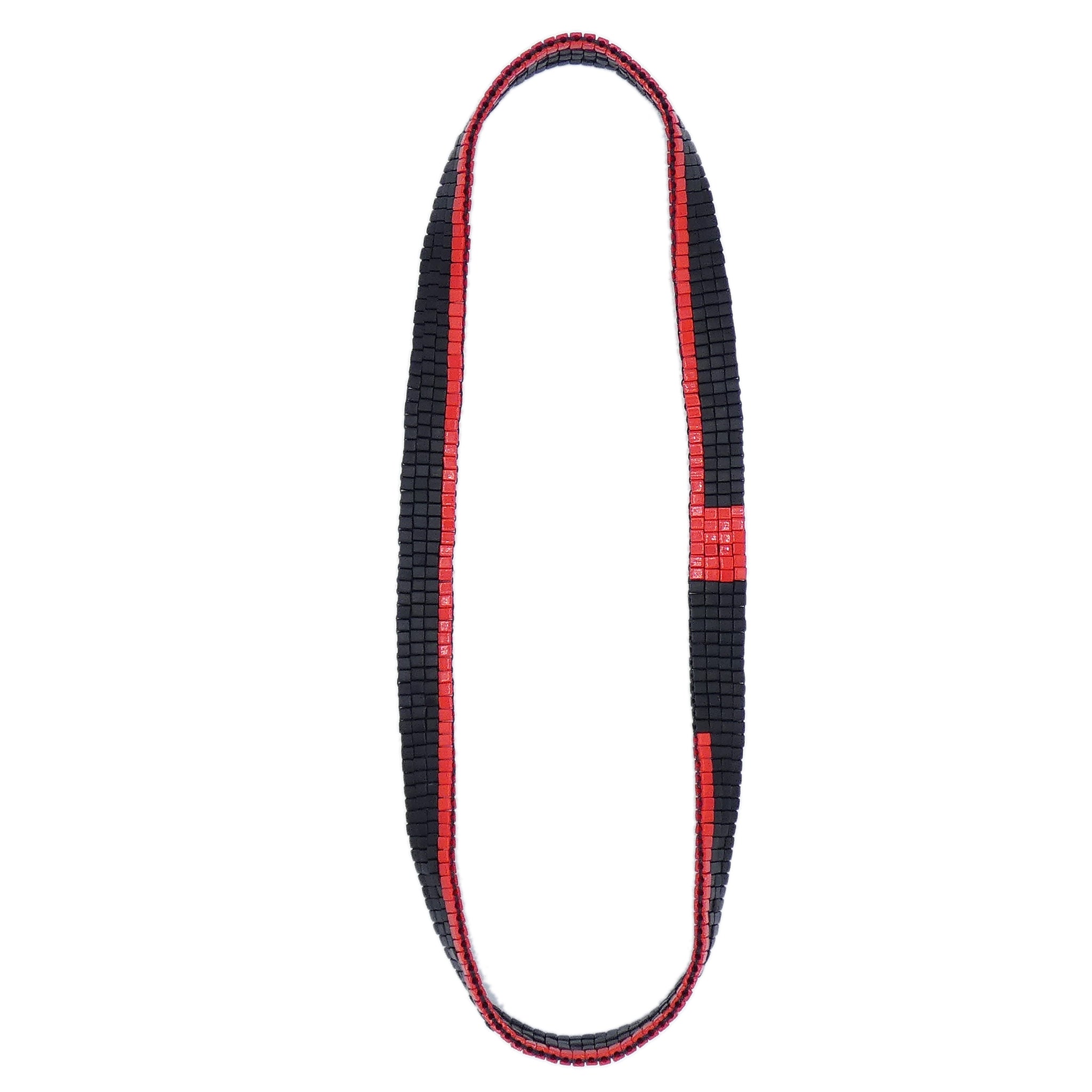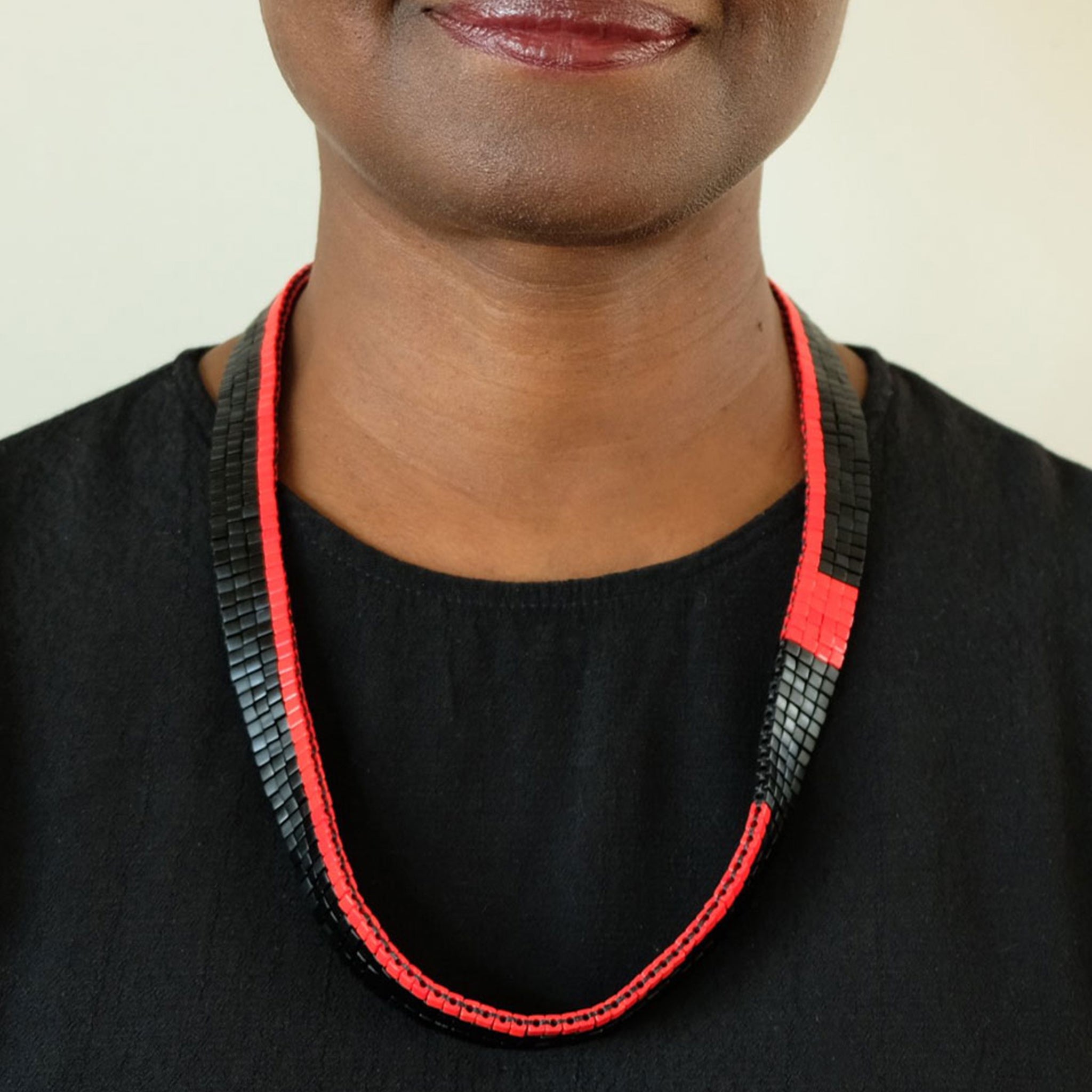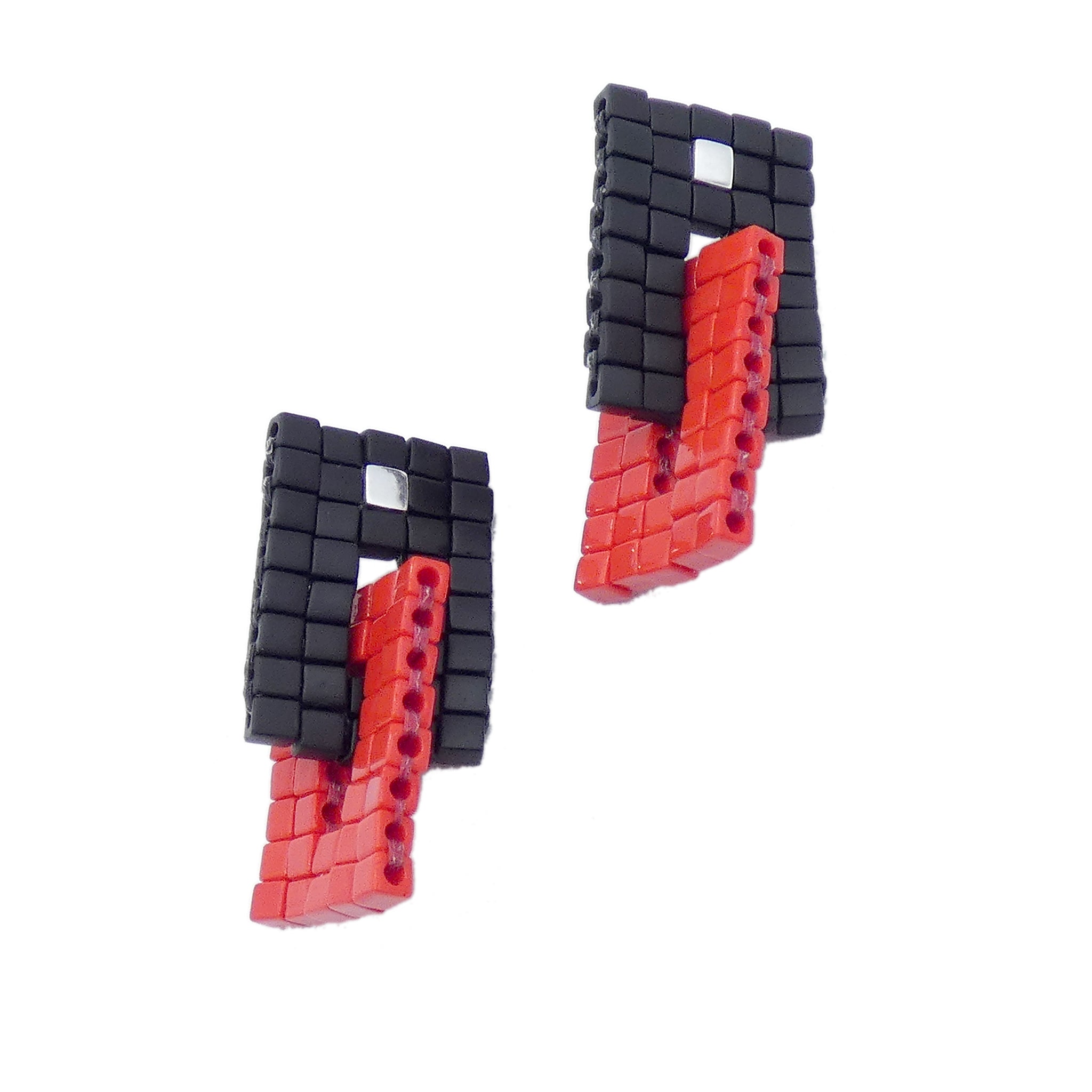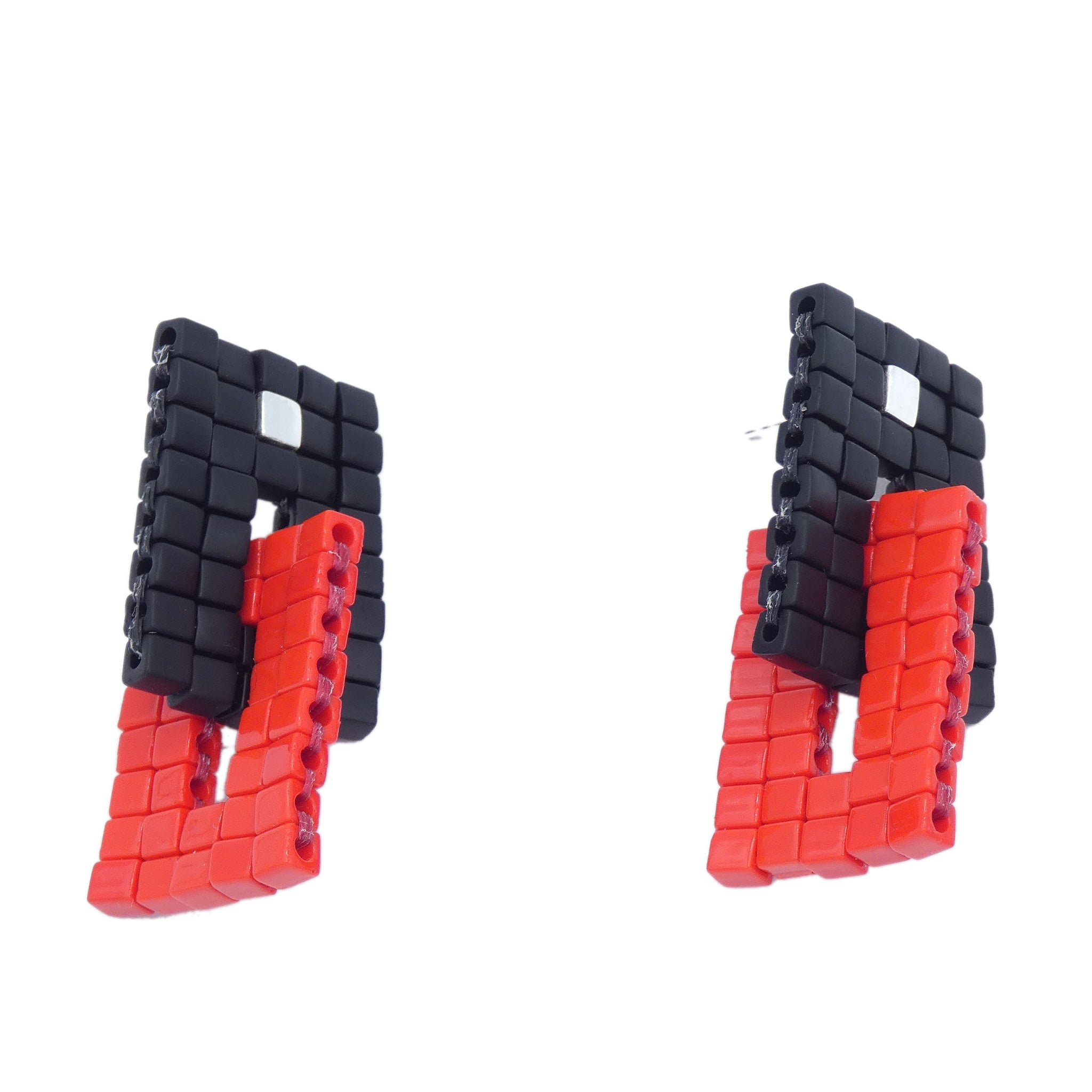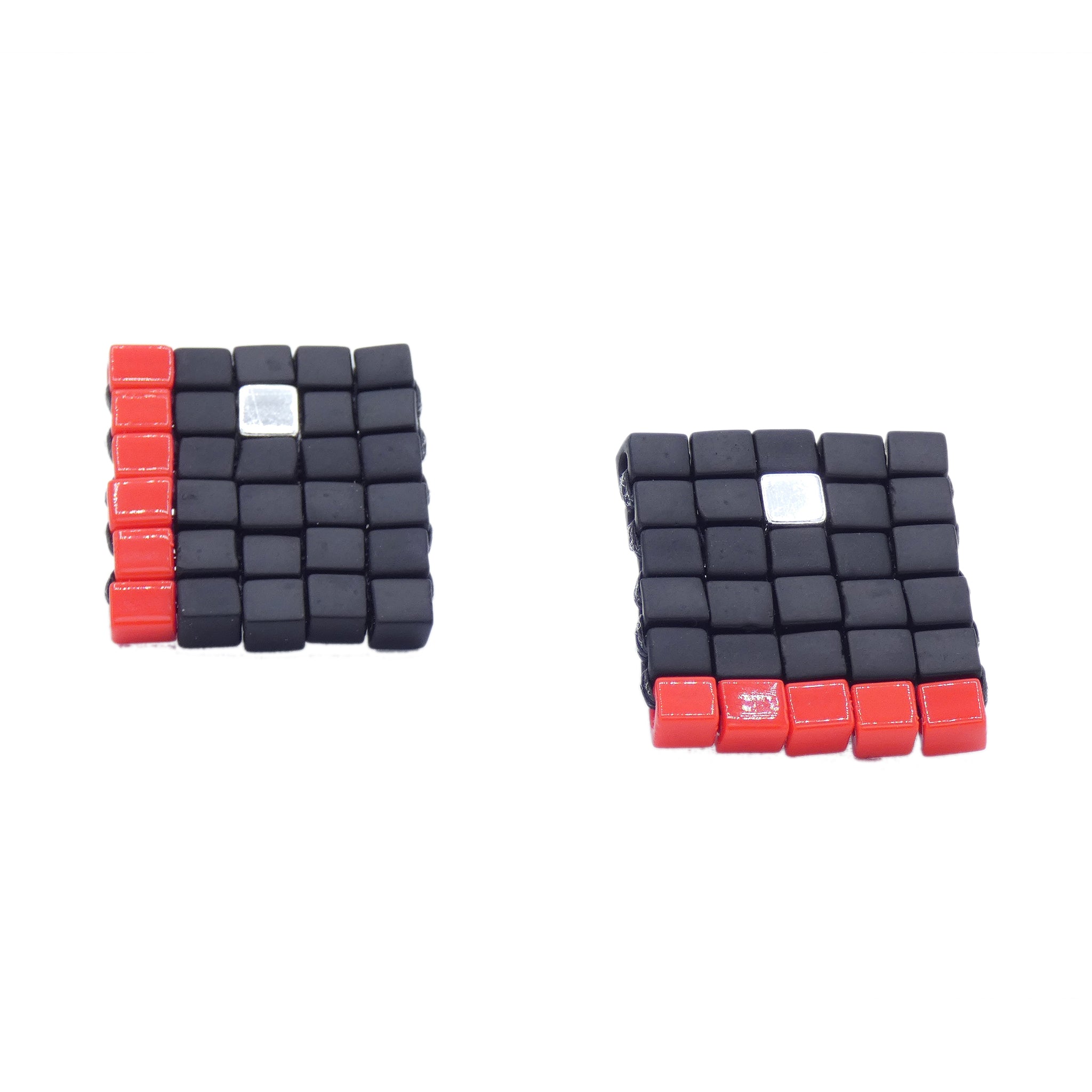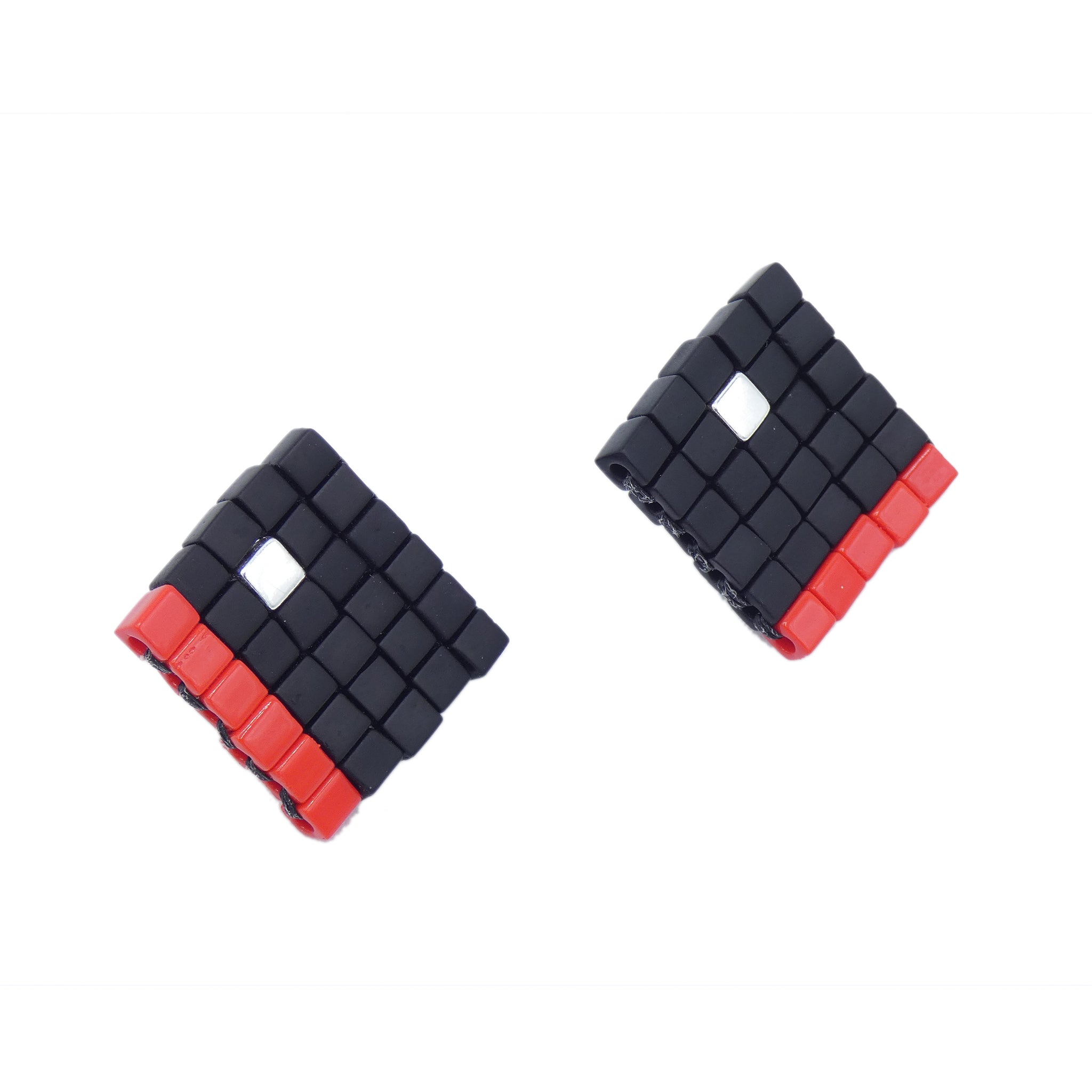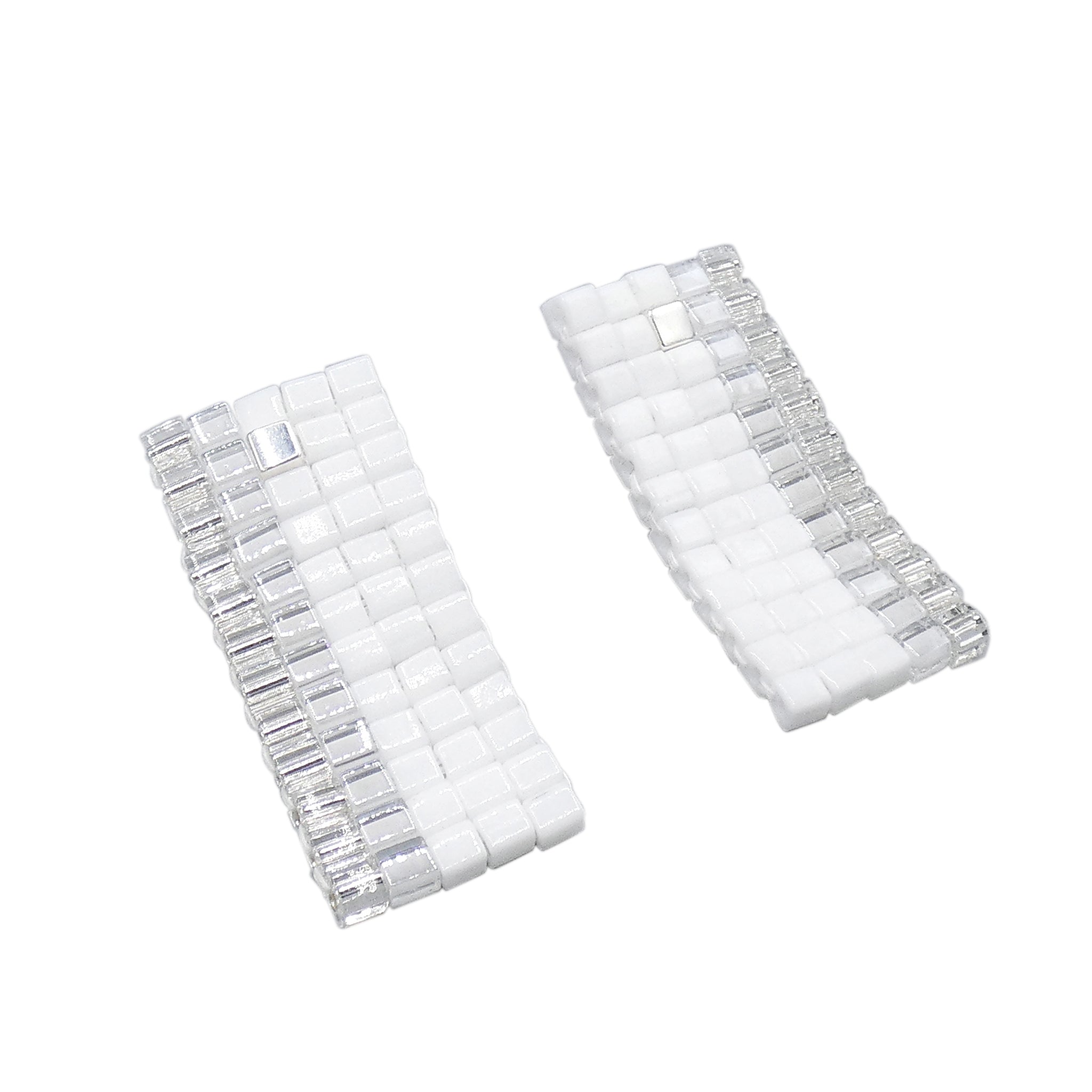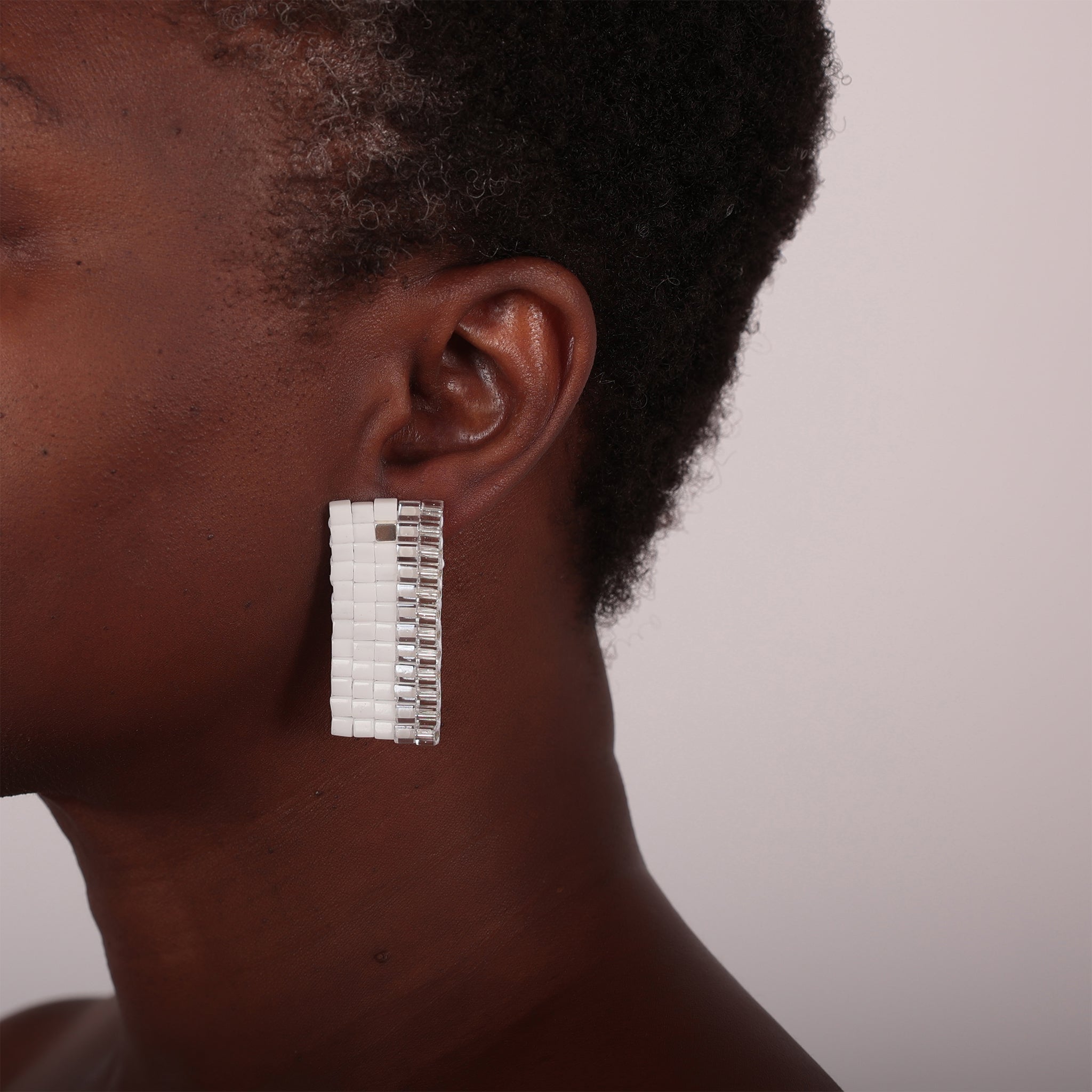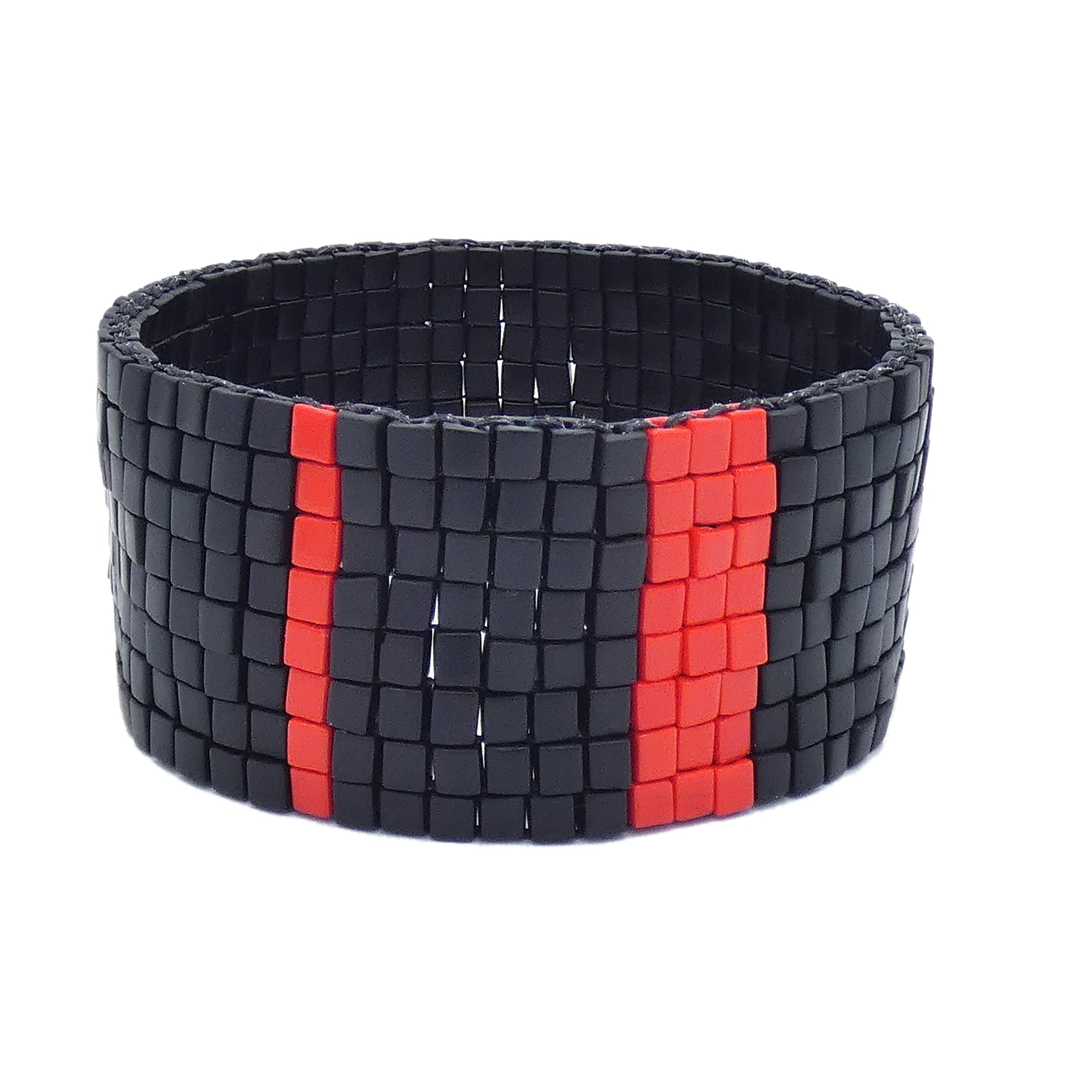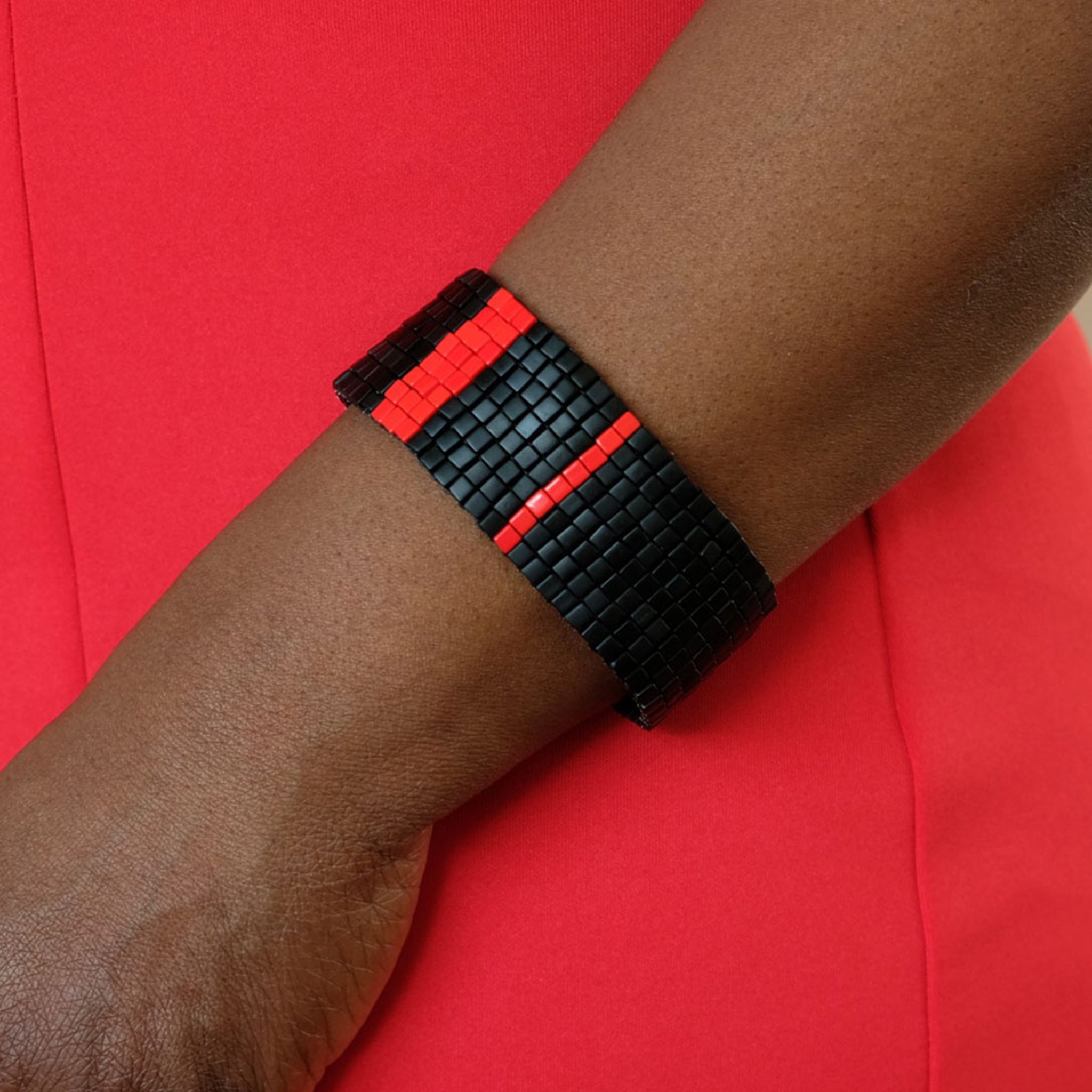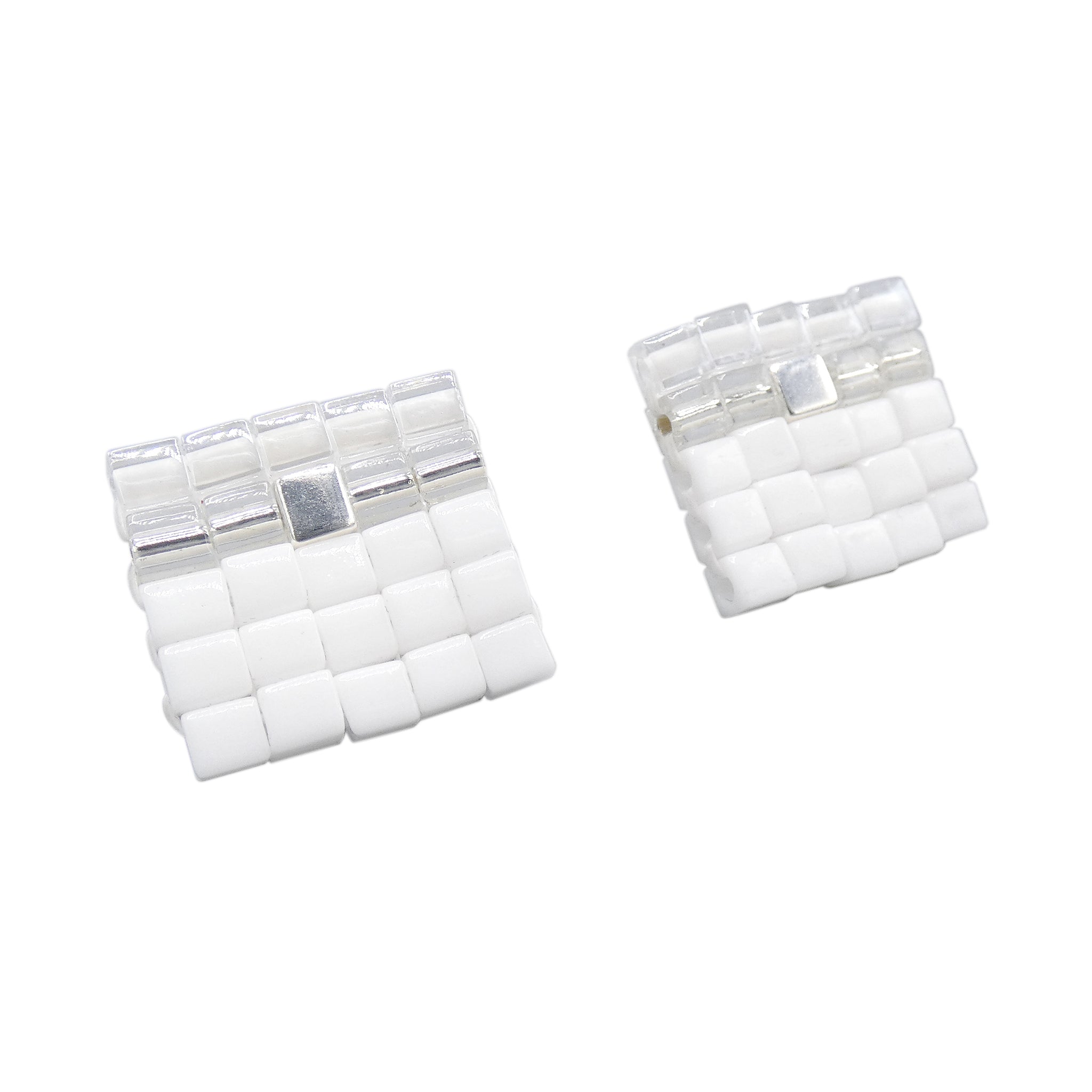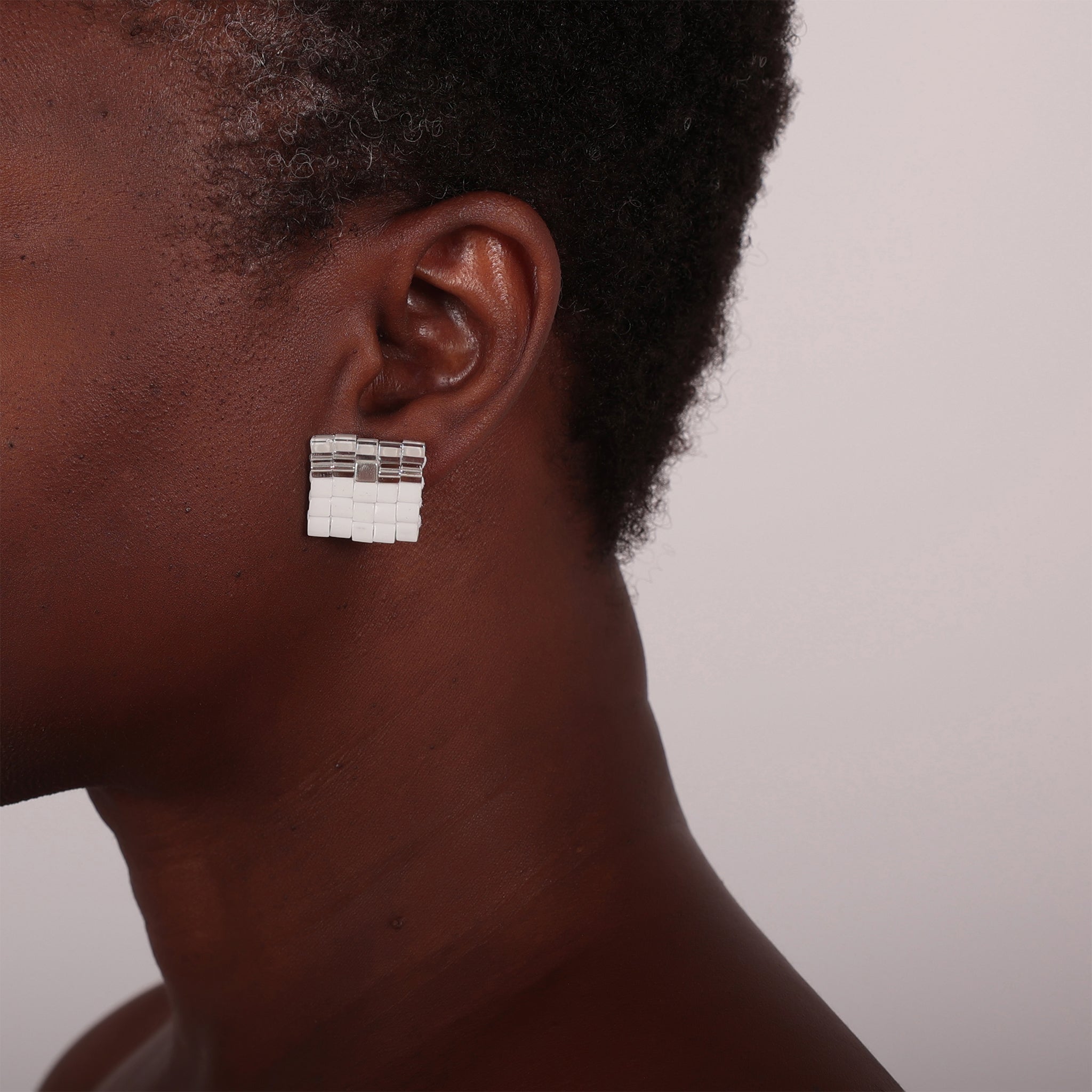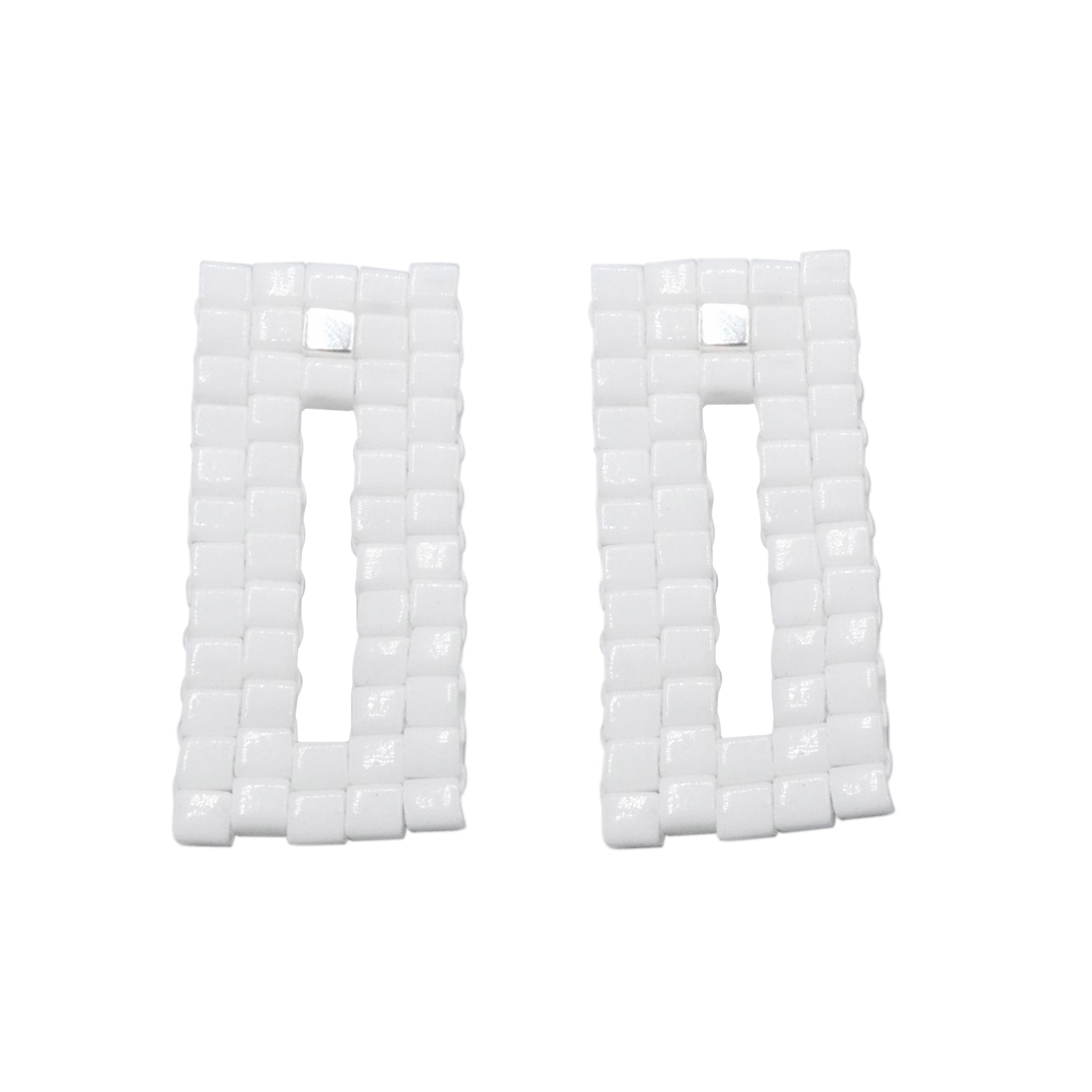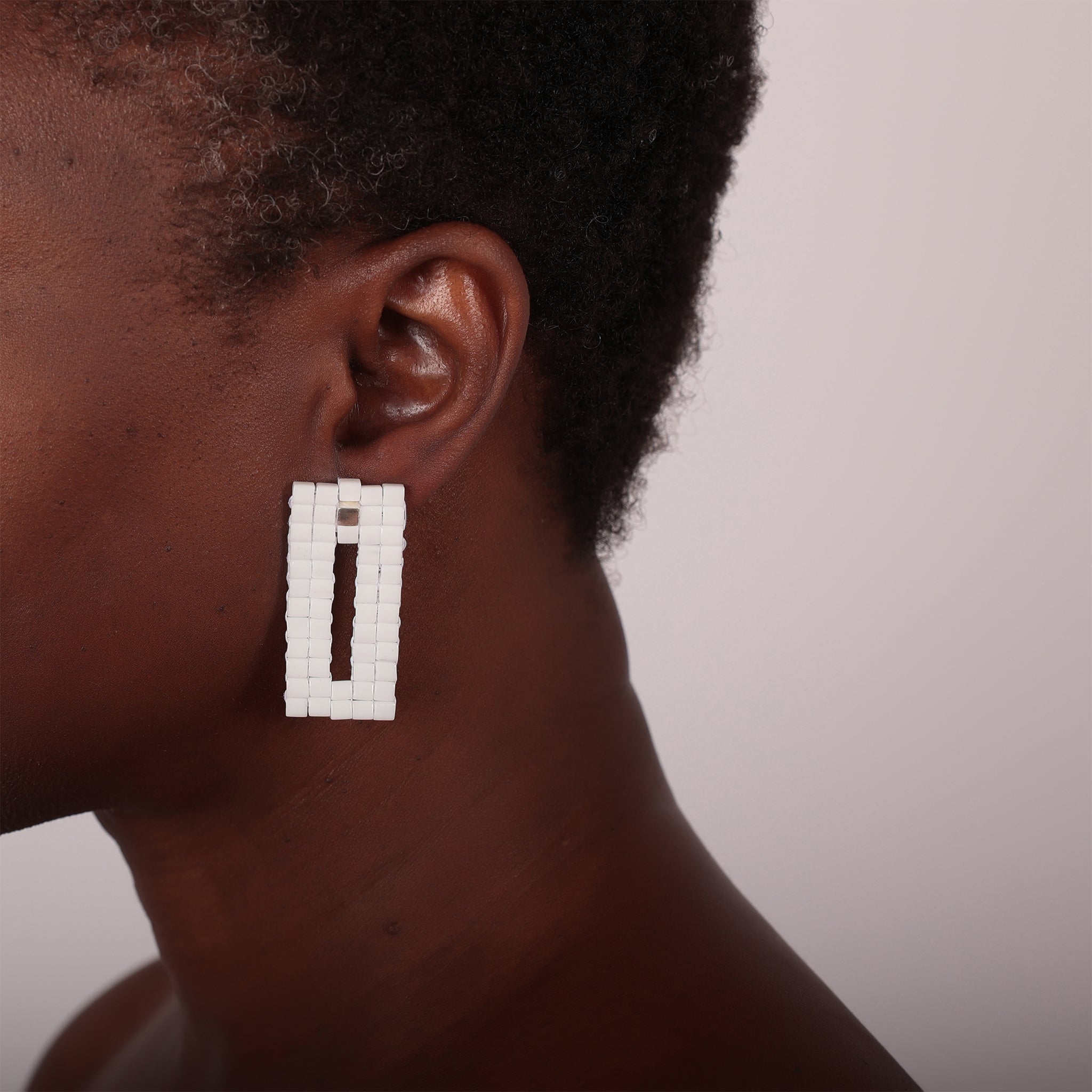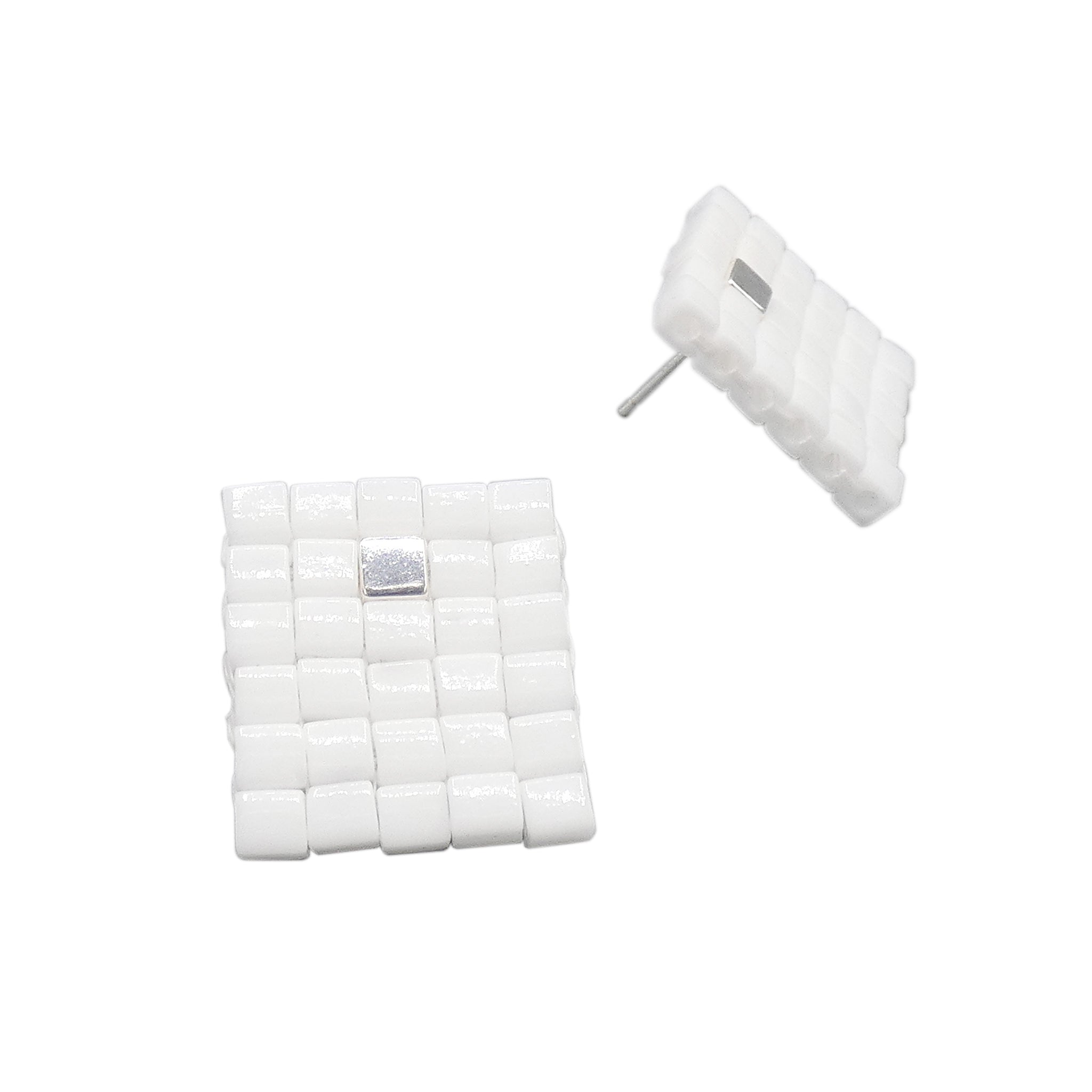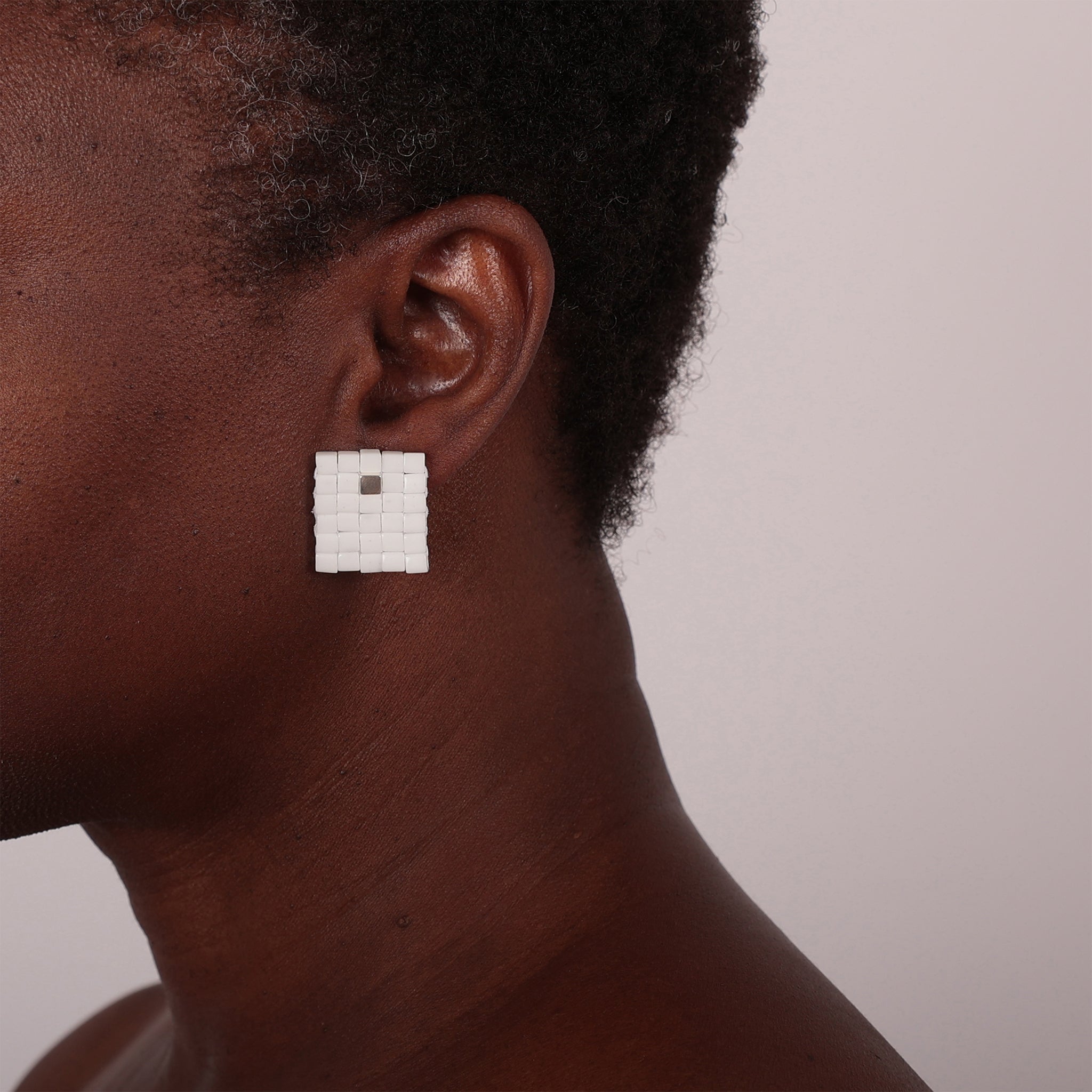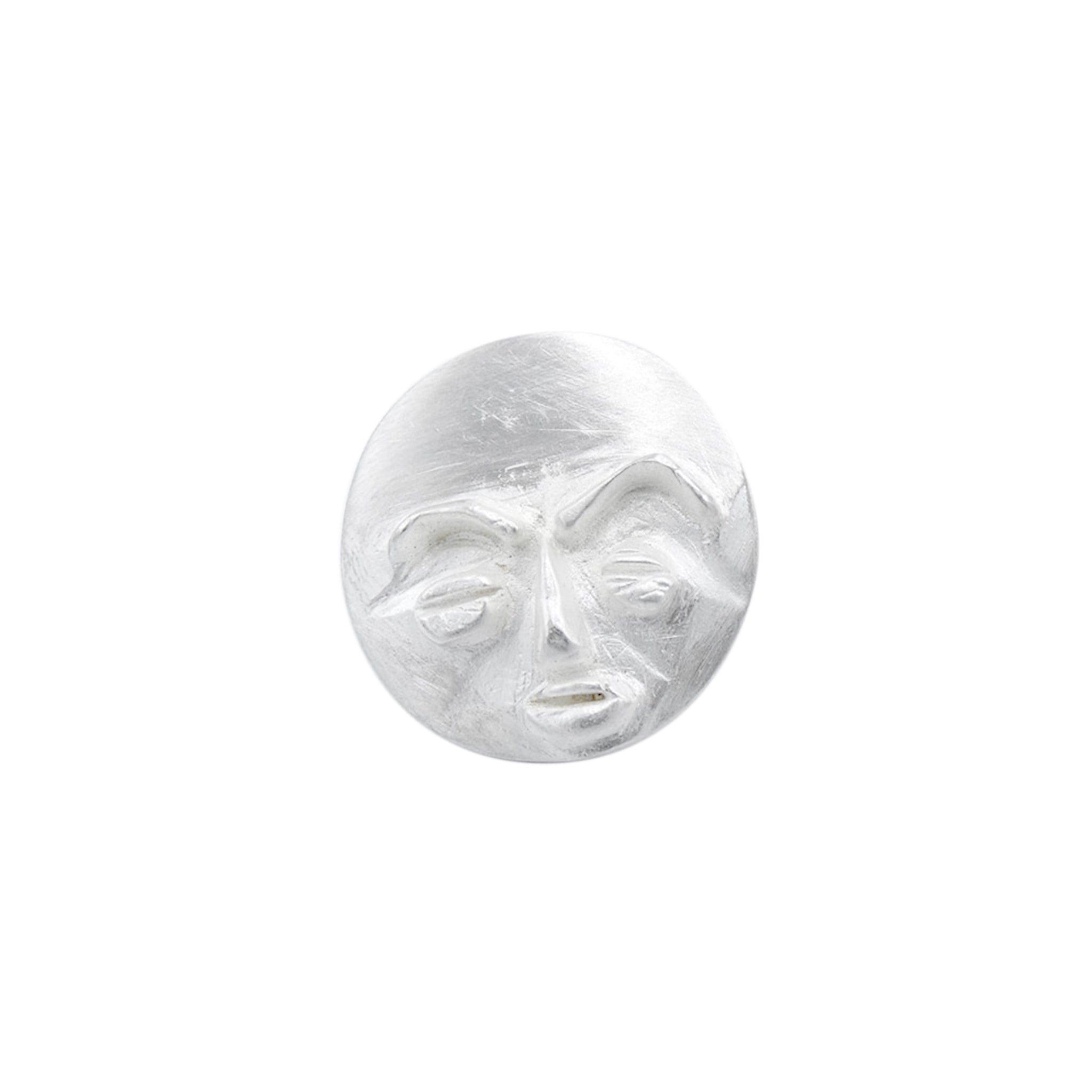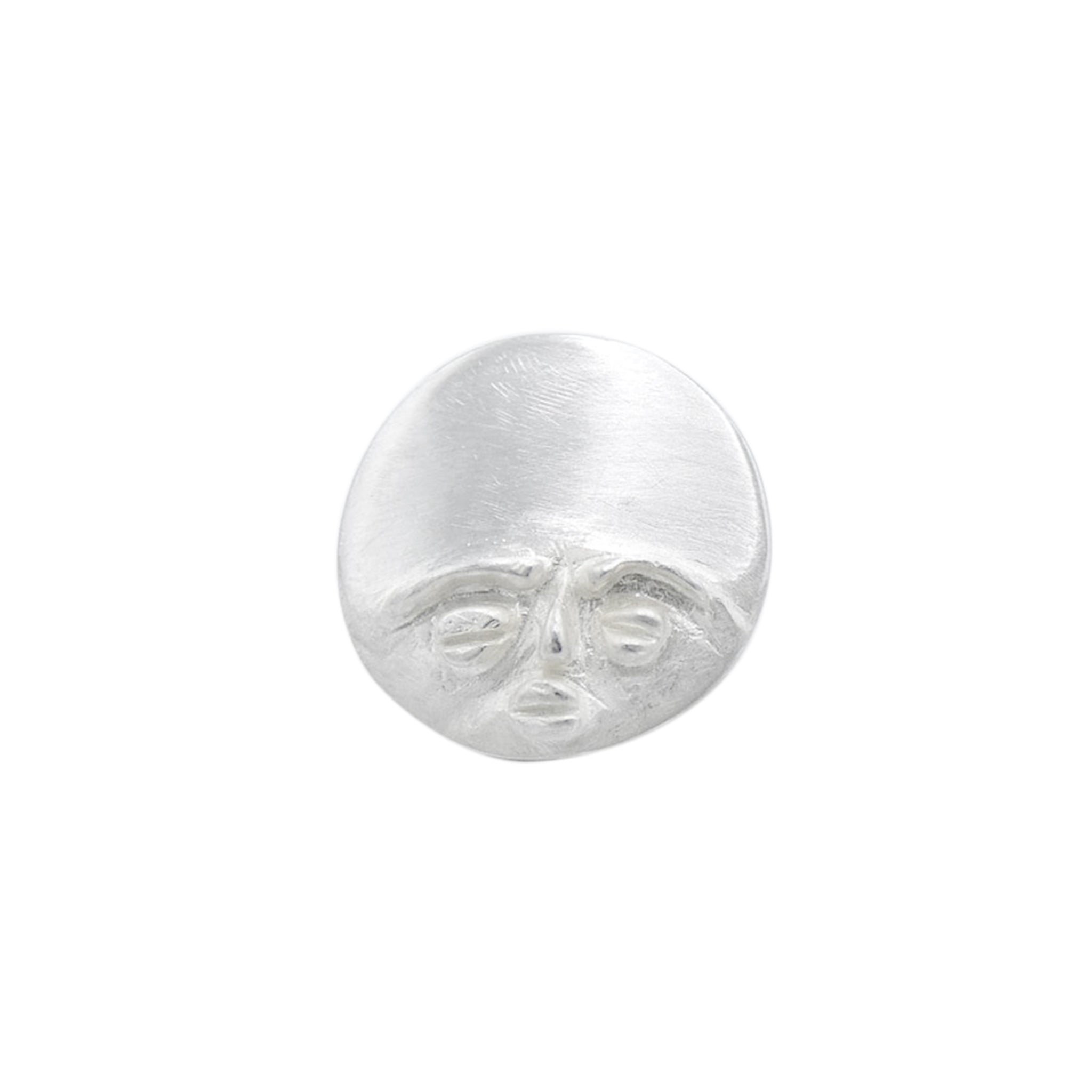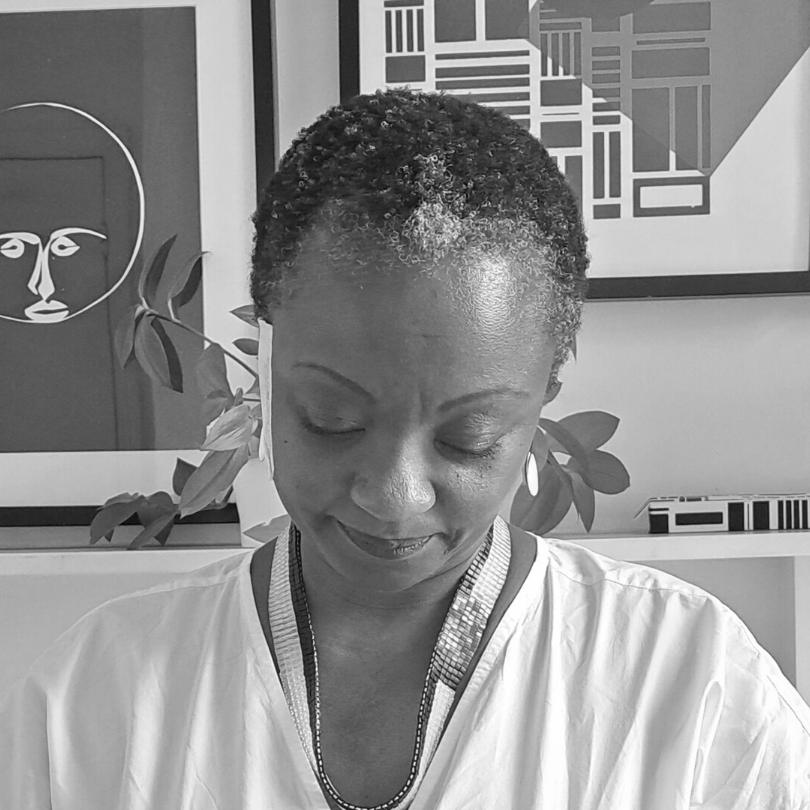
Jo Boateng
Jo Boateng grew up in Kumasi, in Ghana. Wooden dolls, colourful woven textiles, beads and gold jewellery made by her grandfather were part of her early surroundings. Her father accepted a posting to teach Maths in the UK, and Jo and her sister would later join their parents. Jo experienced the traditional customs and funeral rituals after the death of her father and grandmother. This stirred up an interest in her ancestry, particularly the crafts and ceremonies intrinsic to the Ghanaian cultural identity.
In 2022, she began taking jewellery-making and silkscreen printing classes and was awarded a De Beers Group Starter Level Jewellery Scholarship. She won Best in Show at the Chroic Jewellery Competition, and her prints were in the Morley Gallery MADE 2023 Exhibition. Inspired by the ethos of the Memphis art movement, Jo incorporates the classic techniques of carving, casting, weaving and beading, along with Akan symbolism and patterns into her jewellery and printmaking.
Jo Boateng’s Nwene (woven) and Akua maa (Akua's babies) Collections are a fusion of textile weaving, beading, carving, and casting, underpinned by Ghanaian aesthetics and culture. Nwene is made of glass beads, woven, interlocked, and connected to create patterns and shapes. These pieces echo the technique and patterns of the classic Kente cloth. The resulting forms are deliberately nonconforming, unfussy, tactile, and malleable. Colour is applied to add texture. The colours white, black, and red are integral to the Ghanaian dress code for various rituals and ceremonies. Akua maa takes its form from the features of the fertility doll Akua ba. Consisting of a set of seven carved pieces, cast in sterling silver which represent each of the Akan female day names. The custom of day names is prevalent across all Ghanaian tribes. Newborns automatically acquire a name according to their gender and the day of the week on which they are born.
Free shipping
All orders above £100 will be delivered for free in the UK.

